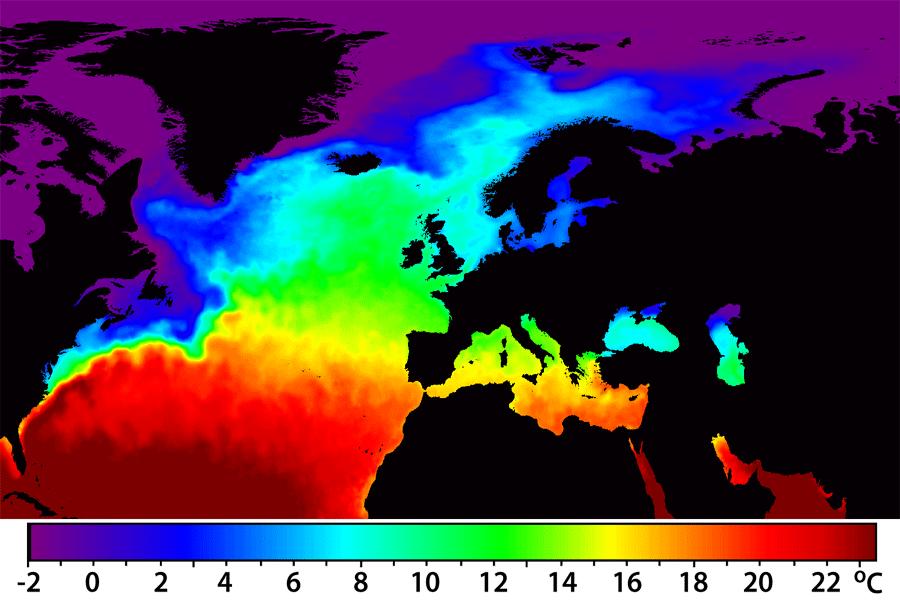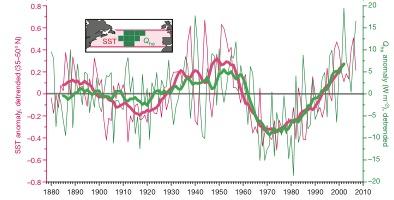The North Atlantic Ocean drives the weather
Jacob Bjerknes, the father of modern weather forecasting, suggested a connection between European weather and temperatures in the North Atlantic. Fifty years later, the Bjerknes Centre in Bergen helps to prove that Bjerknes was right in his prediction.
Hovedinnhold
The last decade has brought a spate of hot summers and cold winters. The cause of these – natural variability or global warming – is debated. Persistent periods of extreme weather are not a new phenomenon for Europe. In particular, the 1940s also saw a series of cold winters and summer heat waves. At the same time temperatures of the North Atlantic Ocean varied with time scale of 70-80 years, and they were unusually warm in the 1940s, as they are now.
Bjerknes envisaged the oceans pumps
Are European weather and North Atlantic Ocean temperature linked? This question interested Jacob Bjerknes, and he was the first to postulate that the North Atlantic Ocean may drive changes in climate on these time scales. Based on limited data, Bjerknes in a study published in 1967 argued that persistent warming and cooling periods of the North Atlantic could not be entirely explained by atmospheric changes, but may instead drive them.
The first observational proof
A new study just published in Nature provides the first observational proof for Bjerknes’ conjecture. The study was lead by Professor Sergey Gulev of the P. P. Shirshov Institute of Oceanology, Moscow, and includes scientists from Moscow State University, Moscow; GEOMAR, Germany; and the Bjerknes Centre for Climate Research at the University of Bergen (UiB). It provides a new estimate of turbulent surface heat flux for the North Atlantic from ship measurements extending back till 1880, using an innovative statistical algorithm.
Ocean and atmosphere communicate via turbulent heat flux, which transfer heat between the two. Gulev et al. (2013) show that sea surface temperature and turbulent heat flux co-varied over the Gulf Stream and its extension to the North Atlantic on longer timescales (Fig 1). Specifically, they show that the atmosphere did not entirely drive the observed persistent warming and cooling periods. Rather the ocean may drive the atmosphere on these time scales.
Improved decadal forecasts
While the results do not prove that the North Atlantic influences European weather, they provide the first observational evidence that the ocean in this region can influence the atmosphere. This is important step towards the realisation of climate prediction for the North Atlantic Sector, and follows in the spirit of the groundbreaking work of Bjerknes and other scientists from Bergen.


